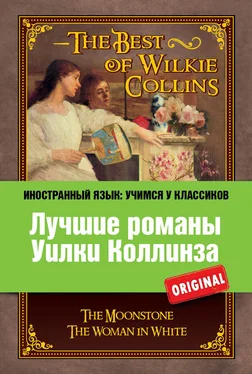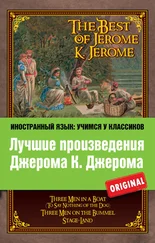“Where is he?” whispered the servant, staring vacantly at the flames.
“He’s dust and ashes,” said the clerk. “And the books are dust and ashes – and oh, sirs! the church will be dust and ashes soon.”
Those were the only two who spoke. When they were silent again, nothing stirred in the stillness but the bubble and the crackle of the flames.
Hark!
A harsh rattling sound in the distance – then the hollow beat of horses’ hoofs at full gallop – then the low roar, the all-predominant tumult of hundreds of human voices clamouring and shouting together. The engine at last.
The people about me all turned from the fire, and ran eagerly to the brow of the hill. The old clerk tried to go with the rest, but his strength was exhausted. I saw him holding by one of the tombstones. “Save the church!” he cried out faintly, as if the firemen could hear him already.
Save the church!
The only man who never moved was the servant. There he stood, his eyes still fastened on the flames in a changeless, vacant stare. I spoke to him, I shook him by the arm. He was past rousing. He only whispered once more, “Where is he?”
In ten minutes the engine was in position, the well at the back of the church was feeding it, and the hose was carried to the doorway of the vestry. If help had been wanted from me I could not have afforded it now. My energy of will was gone – my strength was exhausted – the turmoil of my thoughts was fearfully and suddenly stilled, now I knew that he was dead.
I stood useless and helpless – looking, looking, looking into the burning room.
I saw the fire slowly conquered. The brightness of the glare faded – the steam rose in white clouds, and the smouldering heaps of embers showed red and black through it on the floor. There was a pause – then an advance all together of the firemen and the police which blocked up the doorway – then a consultation in low voices – and then two men were detached from the rest, and sent out of the churchyard through the crowd. The crowd drew back on either side in dead silence to let them pass.
After a while a great shudder ran through the people, and the living lane widened slowly. The men came back along it with a door from one of the empty houses. They carried it to the vestry and went in. The police closed again round the doorway, and men stole out from among the crowd by twos and threes and stood behind them to be the first to see. Others waited near to be the first to hear. Women and children were among these last.
The tidings from the vestry began to flow out among the crowd – they dropped slowly from mouth to mouth till they reached the place where I was standing. I heard the questions and answers repeated again and again in low, eager tones all round me.
“Have they found him?” “Yes.” – “Where?” “Against the door, on his face.” – “Which door?” “The door that goes into the church. His head was against it – he was down on his face.” – “Is his face burnt?” “No.” “Yes, it is.” “No, scorched, not burnt – he lay on his face, I tell you.” – “Who was he? A lord, they say.” “No, not a lord. SIR Something; Sir means Knight.” “And Baronight, too.” “No.” “Yes, it does.” – “What did he want in there?” “No good, you may depend on it.” – “Did he do it on purpose?” – “Burn himself on purpose!” – “I don’t mean himself, I mean the vestry.” – “Is he dreadful to look at?” “Dreadful!” – “Not about the face, though?” “No, no, not so much about the face. Don’t anybody know him?” “There’s a man says he does.” – “Who?” “A servant, they say. But he’s struck stupid-like, and the police don’t believe him.” – “Don’t anybody else know who it is?” “Hush —!”
The loud, clear voice of a man in authority silenced the low hum of talking all round me in an instant.
“Where is the gentleman who tried to save him?” said the voice.
“Here, sir – here he is!” Dozens of eager faces pressed about me – dozens of eager arms parted the crowd. The man in authority came up to me with a lantern in his hand.
“This way, sir, if you please,” he said quietly.
I was unable to speak to him, I was unable to resist him when he took my arm. I tried to say that I had never seen the dead man in his lifetime – that there was no hope of identifying him by means of a stranger like me. But the words failed on my lips. I was faint, and silent, and helpless.
“Do you know him, sir?”
I was standing inside a circle of men. Three of them opposite to me were holding lanterns low down to the ground. Their eyes, and the eyes of all the rest, were fixed silently and expectantly on my face. I knew what was at my feet – I knew why they were holding the lanterns so low to the ground.
“Can you identify him, sir?”
My eyes dropped slowly. At first I saw nothing under them but a coarse canvas cloth. The dripping of the rain on it was audible in the dreadful silence. I looked up, along the cloth, and there at the end, stark and grim and black, in the yellow light – there was his dead face.
So, for the first and last time, I saw him. So the Visitation of God ruled it that he and I should meet.
The inquest was hurried for certain local reasons which weighed with the coroner and the town authorities. It was held on the afternoon of the next day. I was necessarily one among the witnesses summoned to assist the objects of the investigation.
My first proceeding in the morning was to go to the post-office, and inquire for the letter which I expected from Marian. No change of circumstances, however extraordinary, could affect the one great anxiety which weighed on my mind while I was away from London. The morning’s letter, which was the only assurance I could receive that no misfortune had happened in my absence, was still the absorbing interest with which my day began.
To my relief, the letter from Marian was at the office waiting for me.
Nothing had happened – they were both as safe and as well as when I had left them. Laura sent her love, and begged that I would let her know of my return a day beforehand. Her sister added, in explanation of this message, that she had saved “nearly a sovereign” out of her own private purse, and that she had claimed the privilege of ordering the dinner and giving the dinner which was to celebrate the day of my return. I read these little domestic confidences in the bright morning with the terrible recollection of what had happened the evening before vivid in my memory. The necessity of sparing Laura any sudden knowledge of the truth was the first consideration which the letter suggested to me. I wrote at once to Marian to tell her what I have told in these pages – presenting the tidings as gradually and gently as I could, and warning her not to let any such thing as a newspaper fall in Laura’s way while I was absent. In the case of any other woman, less courageous and less reliable, I might have hesitated before I ventured on unreservedly disclosing the whole truth. But I owed it to Marian to be faithful to my past experience of her, and to trust her as I trusted herself.
My letter was necessarily a long one. It occupied me until the time came for proceeding to the inquest.
The objects of the legal inquiry were necessarily beset by peculiar complications and difficulties. Besides the investigation into the manner in which the deceased had met his death, there were serious questions to be settled relating to the cause of the fire, to the abstraction of the keys, and to the presence of a stranger in the vestry at the time when the flames broke out. Even the identification of the dead man had not yet been accomplished. The helpless condition of the servant had made the police distrustful of his asserted recognition of his master. They had sent to Knowlesbury overnight to secure the attendance of witnesses who were well acquainted with the personal appearance of Sir Percival Glyde, and they had communicated, the first thing in the morning, with Blackwater Park. These precautions enabled the coroner and jury to settle the question of identity, and to confirm the correctness of the servant’s assertion; the evidence offered by competent witnesses, and by the discovery of certain facts, being subsequently strengthened by an examination of the dead man’s watch. The crest and the name of Sir Percival Glyde were engraved inside it.
Читать дальше
Конец ознакомительного отрывка
Купить книгу












